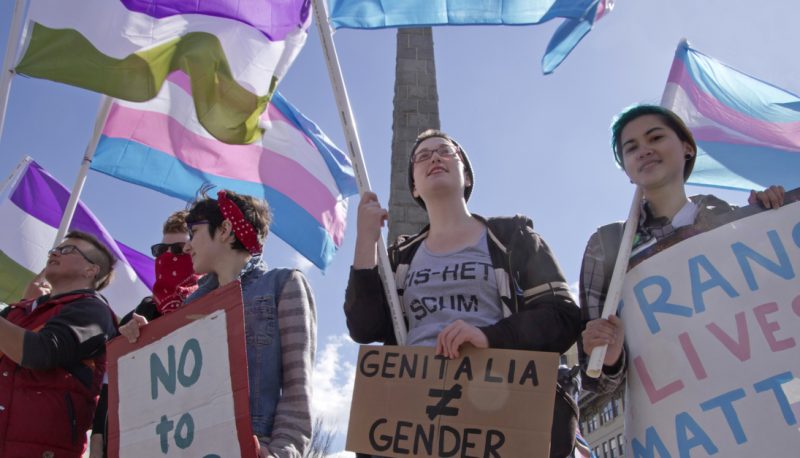Three Trump judges on the Eleventh Circuit relied on the Supreme Court’s Dobbs decision that reversed Roe v Wade in a ruling that overturned a trial court injunction and put into effect a harmful Alabama law that forbids important medical treatment for transgender teens. The ruling is a prime example of the harm being caused by Dobbs, especially when used by Trump lower court judges. The August 2023 ruling was in Eknes-Tucker v Governor of the State of Alabama.
What is this case about?
In 2022, Alabama passed a restrictive law that makes it a crime to help provide puberty blockers or cross-sex hormone treatment to a minor in order to “affirm the perception of his or her gender or sex” if it is different from their sex at birth. Shortly after the law passed, several transgender teens and their parents, and others filed a constitutional challenge to the law in federal court in Alabama.
After extensive hearings and briefing (including by the Department of Justice on the side of the teens and their parents), the district court issued a preliminary injunction partly stopping the law from taking effect while the litigation continued. The court ruled that forbidding transgender-related treatment probably violated the due process and equal protection clauses and that such treatment should be allowed to continue for now at the request of parents and teens.
The state appealed the preliminary injunction decision to the Eleventh Circuit. A panel composed of three Trump judges –Barbara Lagoa, Andrew Brasher, and District Judge J.P. Boulee sitting by designation – heard the case.
What did the Trump judges on the Eleventh Circuit decide and why is it important?
Judge Lagoa wrote a unanimous decision that reversed the lower court and put the Alabama criminal law fully in place. In overturning the trial court ruling that the law violated the due process clause, including the recognized fundamental rights of parents concerning their children, the Trump judges relied heavily on the Supreme Court’s ruling reversing Roe v Wade in Dobbs v Jackson Women’s Health Org. According to Lagoa, the 5-4 majority in Dobbs “instructed” lower courts considering whether a particular right is “fundamental” under the due process clause and entitled to significant protection to engage in a “careful analysis of the history” of the specific right and to be “reluctant to recognize rights not specifically mentioned in the Constitution.” Just as the 5-4 Court majority in Dobbs ruled that the specific right to obtain an abortion is not “deeply rooted” in our nation’s “history and tradition” and is thus not a fundamental right, so did Lagoa and the other Trump judges rule that the specific right to obtain treatment for their transgender teens is not a fundamental right.
The result, Lagoa wrote, was that under the “deferential” review given to laws that do not infringe on fundamental rights, Alabama would probably prevail and the preliminary injunction should be reversed. Lagoa also ruled that the law probably did not violate the Equal Protection Clause by impermissibly discriminating on the basis of sex. The case was sent back to the lower court.
Although the challenge to Alabama’s law will continue, the Trump judges’ decision will obviously harm transgender teens and their parents in Alabama in the meantime. The ruling also provides an all too chilling example of how the 5-4 decision reversing Roe v Wade can and now has been used to harm other rights, particularly at the hands of Trump lower court judges.

